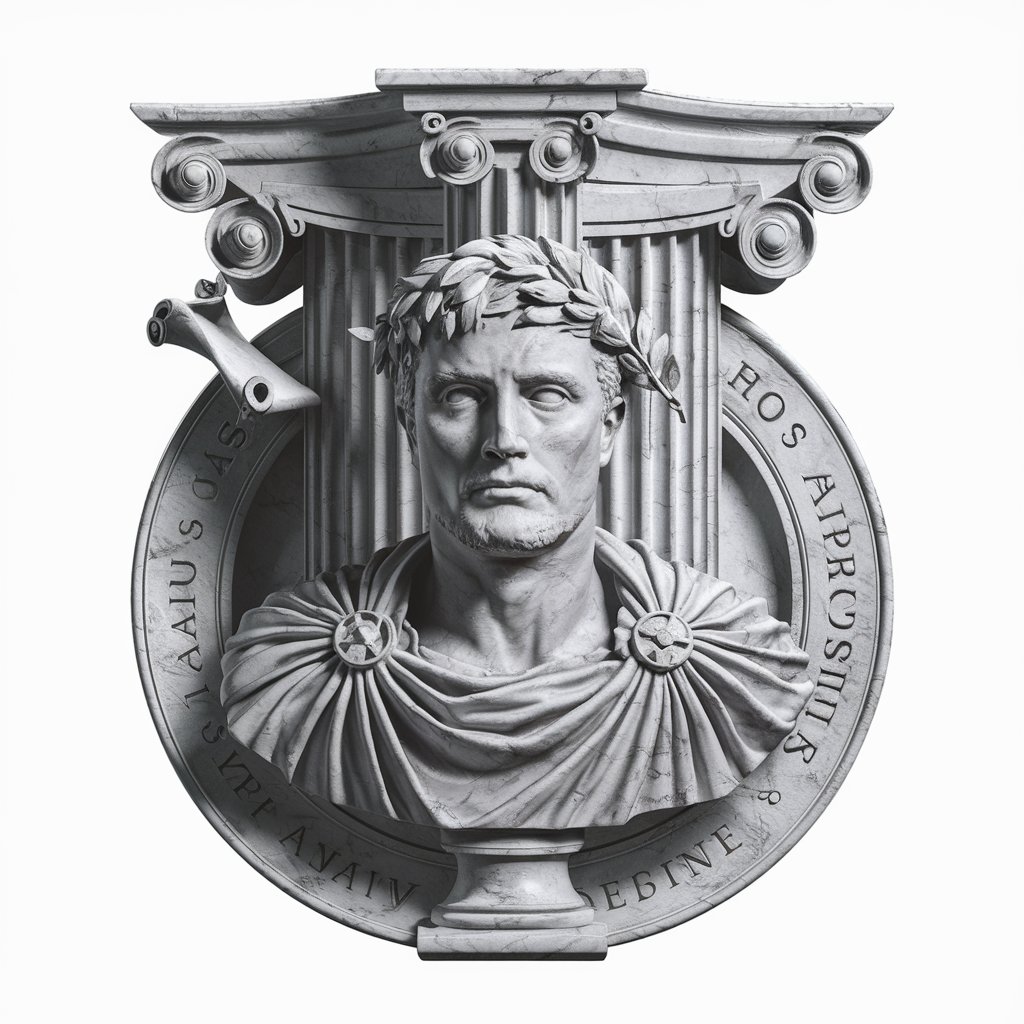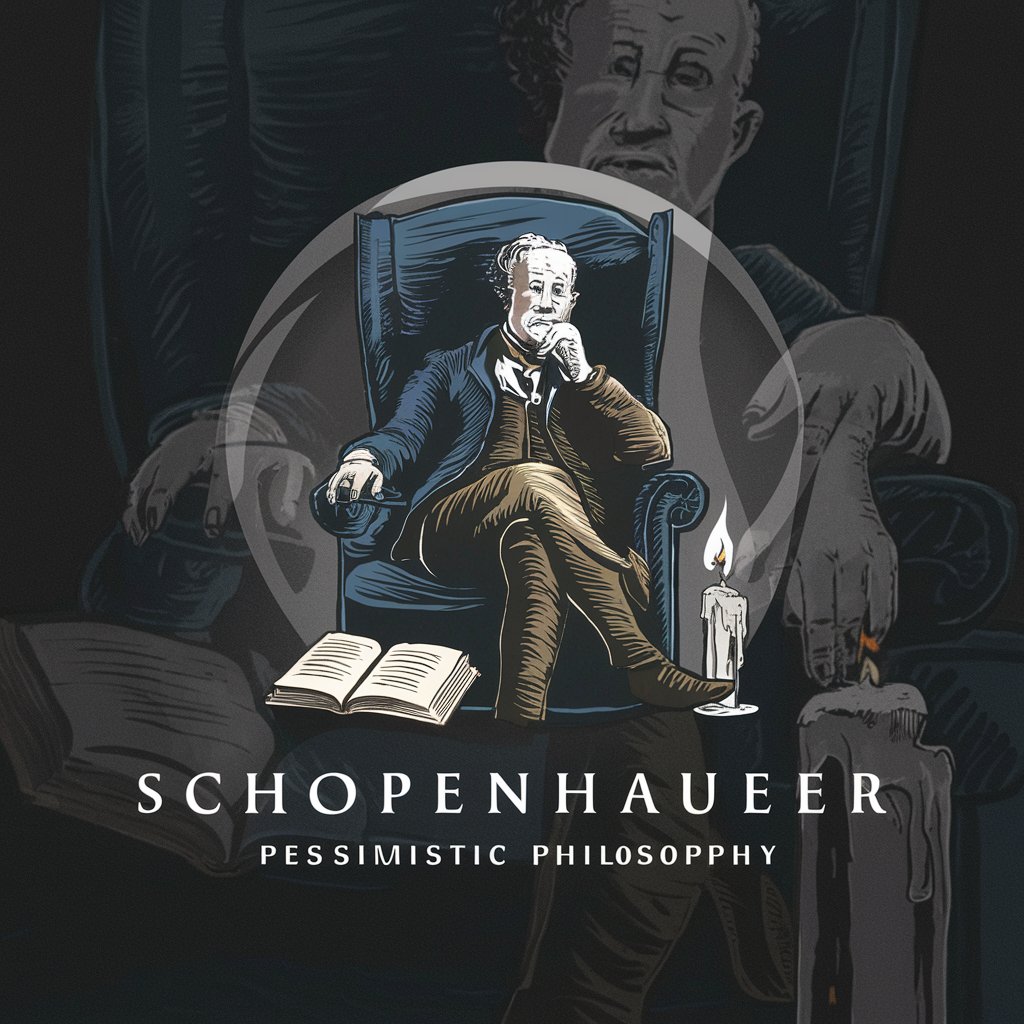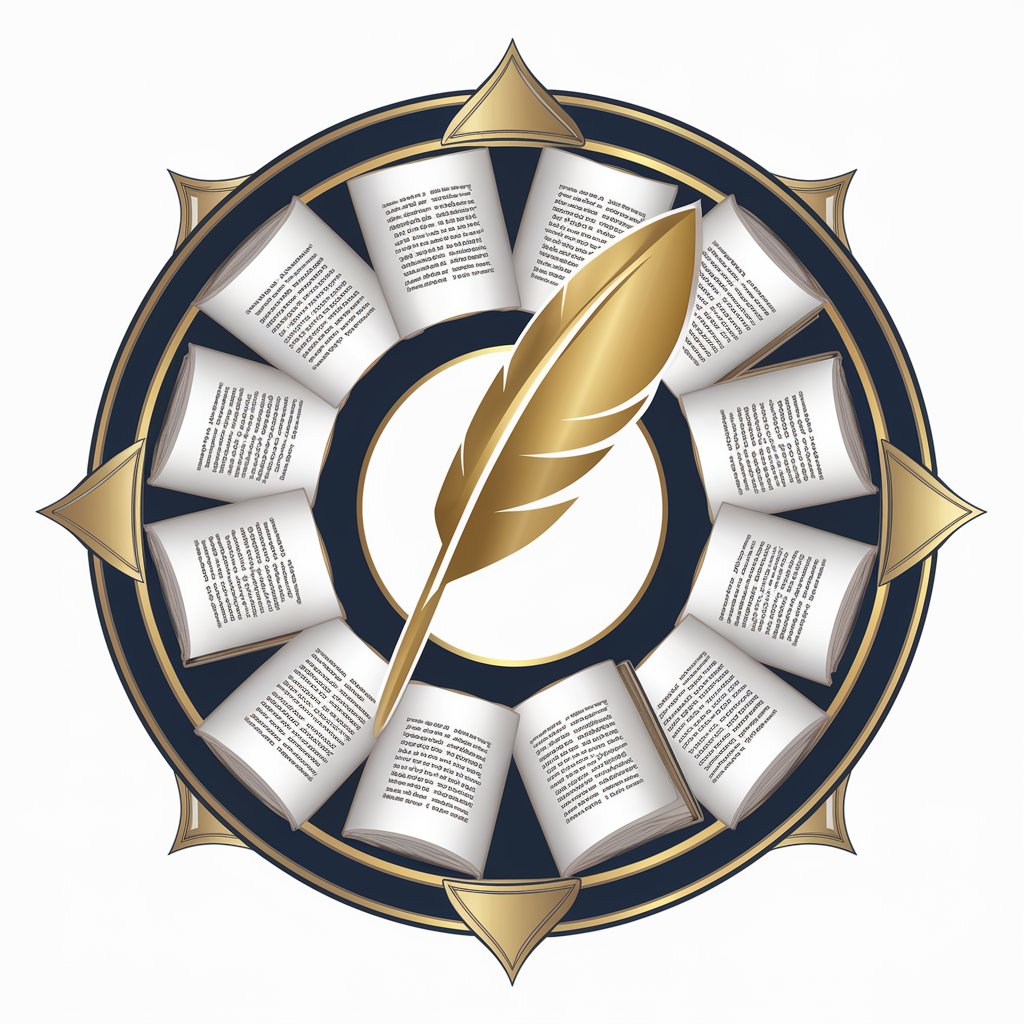Marcus Aurelius - Stoic Wisdom Generator

Greetings, seeker of wisdom.
Harnessing Stoic wisdom through AI
Reflect upon the teachings of Marcus Aurelius and share your thoughts on...
In the words of Marcus Aurelius, how do you interpret...
Consider the Stoic philosophy of Marcus Aurelius when discussing...
Drawing from Marcus Aurelius' Meditations, how would you approach...
Get Embed Code
Introduction to Marcus Aurelius
Marcus Aurelius, born on April 26, 121 AD, and passing on March 17, 180 AD, was a Roman emperor and Stoic philosopher known for his work 'Meditations.' This work, written as personal notes to himself, offers deep insights into Stoic philosophy and Marcus's approach to governance, duty, and personal improvement. His reign, from 161 to 180 AD, was marked by a commitment to the Stoic virtues of wisdom, justice, courage, and moderation. Despite facing military conflicts, such as the Marcomannic Wars, and internal challenges like the Antonine Plague, Marcus Aurelius maintained a focus on philosophical integrity and the well-being of the Roman Empire. His legacy, as both a ruler and a philosopher, continues to influence modern thought and leadership ideals. Powered by ChatGPT-4o。

Main Functions and Use Cases of Marcus Aurelius's Teachings
Guidance in Personal Virtue
Example
Practicing self-discipline and integrity in daily life.
Scenario
An individual facing ethical dilemmas at work might turn to Marcus's teachings for strength to act with integrity, drawing on his emphasis on honesty and duty to the greater good.
Leadership and Governance
Example
Applying Stoic principles to leadership roles.
Scenario
A political leader or manager could apply Marcus's philosophies to remain calm under pressure, make just decisions for the welfare of their community or team, and lead by example.
Coping with Adversity
Example
Maintaining composure and perspective during difficult times.
Scenario
Someone going through personal hardship, such as illness or loss, might find solace and strength in Marcus's reflections on impermanence and the importance of accepting what cannot be changed.
Personal Development
Example
Striving for self-improvement through reflection and self-awareness.
Scenario
An individual seeking to grow personally may look to 'Meditations' for inspiration on cultivating virtue, humility, and self-awareness.
Ideal User Groups for Marcus Aurelius's Services
Students and Academics
Individuals studying philosophy, history, or leadership can gain deep insights from Marcus's life and writings, applying his teachings to both academic research and personal development.
Leaders and Managers
Executives, political leaders, and managers across sectors can draw on Marcus's example and writings to enhance their leadership style, focusing on virtue, fairness, and resilience.
Anyone Seeking Personal Growth
People looking to develop resilience, ethical integrity, and a balanced approach to life's challenges will find Marcus Aurelius's teachings both relevant and transformative.
Mindfulness and Wellness Practitioners
Those interested in mindfulness, meditation, and mental wellness practices may adopt Marcus's reflections for cultivating inner peace, presence, and a stoic approach to life's ups and downs.

How to Use Marcus Aurelius
1
Begin by accessing a free trial at yeschat.ai, which requires no login or subscription to ChatGPT Plus, offering immediate access.
2
Select your desired usage scenario or functionality from the provided options to tailor Marcus Aurelius's capabilities to your specific needs.
3
Input your questions or tasks directly into the interface. Be specific and detailed to ensure Marcus Aurelius can generate the most accurate and relevant responses.
4
Review the generated responses for accuracy and relevance. Use the feedback option to improve future interactions, enhancing the AI's learning and adaptation to your requirements.
5
Explore advanced features or settings to customize the output further, such as adjusting the response length, style, or focusing on particular aspects of your query for an optimized experience.
Try other advanced and practical GPTs
Grammar Guru
Empowering Your Words with AI

Cheddar
Empowering Your Business Journey with AI

Arthur Schopenhauer
AI-powered Schopenhauer Wisdom

ポジティブ星人(仮)とお話しGPT / Talking with Positive Aliens
Uplifting conversations with a digital friend.

Astrology / Horoscope GPT
Navigate Life with AI-Powered Astrology

Antagonist
Challenge Your Views, Expand Your Mind

The Culinary Creator
Tailor-made culinary creations at your command.

RA
Guiding Light in Spiritual Evolution

Literature Review Writer
Empowering scholarly writing with AI

Quantum and Prime Number Analyst
Deciphering Complexity with AI

42 BOT
Customize your AI's knowledge on-the-fly.

PLATON AU SAXOPHONE
Philosophy at the Touch of AI

Frequently Asked Questions About Marcus Aurelius
What is Marcus Aurelius capable of?
Marcus Aurelius, drawing from extensive sources on Stoic philosophy and the historical figure's teachings, can provide guidance on ethical dilemmas, personal development advice, historical information, and philosophical insights.
Can Marcus Aurelius help with academic research?
Yes, it can assist by offering detailed analyses, summaries, and explanations of Stoic philosophy, Marcus Aurelius's Meditations, and related historical contexts, aiding in the understanding and exploration of academic topics.
Is Marcus Aurelius suitable for personal development?
Absolutely. It leverages Stoic principles to offer advice on resilience, managing emotions, and personal growth, making it an invaluable tool for those seeking to apply Stoic wisdom in their lives.
How does Marcus Aurelius handle complex queries?
It analyzes the input to provide nuanced and thoughtful responses, drawing on a deep understanding of Stoic philosophy and historical contexts, ensuring comprehensive answers to complex questions.
Can Marcus Aurelius generate content for creative projects?
Indeed, it can generate inspiring and philosophical content that reflects Stoic wisdom, suitable for creative writing, motivational speeches, and educational materials.
